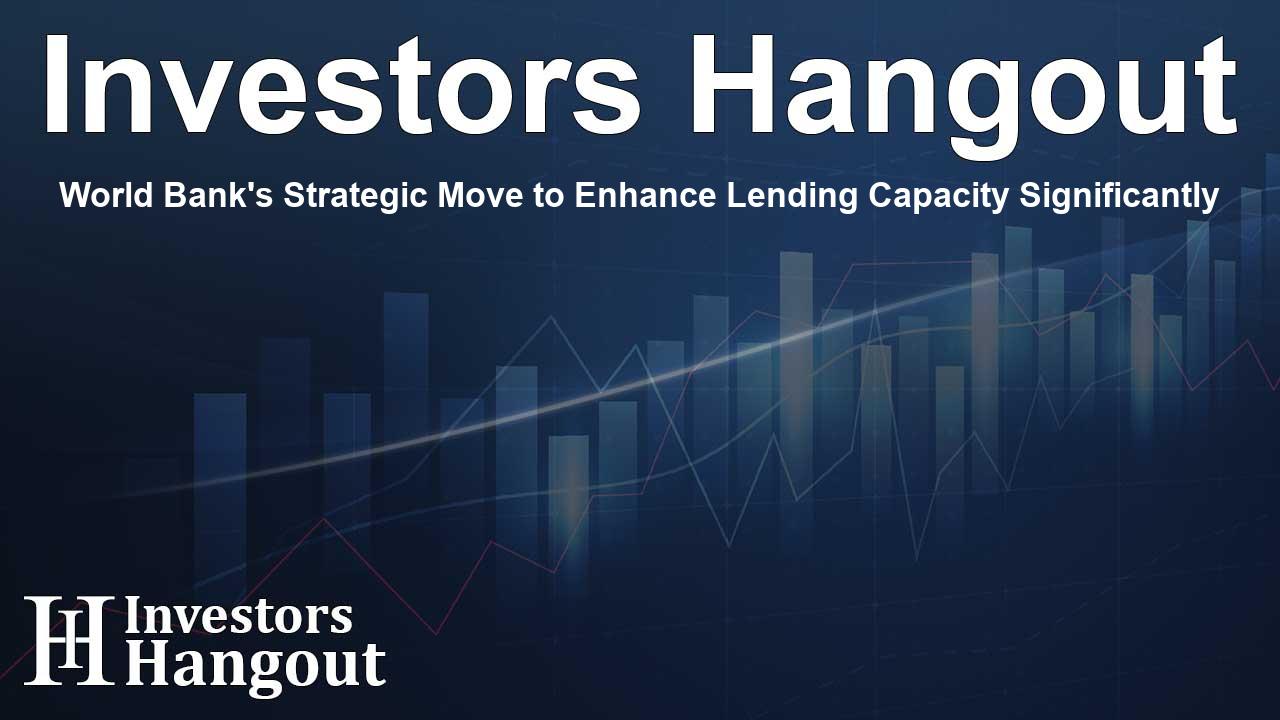World Bank's Strategic Move to Enhance Lending Capacity Significantly

World Bank Enhances Lending Capacity for Developing Countries
The World Bank is taking significant steps to support developing nations facing the pressing challenges of climate change. Recently, it announced an ambitious plan to increase its lending capacity by $30 billion over the next decade. This decision, made by World Bank President Ajay Banga, comes as the institution responds to growing calls for more substantial assistance to countries grappling with various global crises.
Strategic Changes in Lending Guidelines
To facilitate this enhanced lending capability, the World Bank's International Bank for Reconstruction and Development (IBRD) has revised its internal lending guidelines. This includes a reduction in its equity-to-lending ratio, from 19% to 18%. By accepting a slightly higher level of risk, the IBRD aligns its practices with recommendations made by an independent report prepared for the Group of 20 (G20) nations.
Impact of Adjusted Pricing Policies
Banga explained that these strategic adjustments, combined with updated pricing policies, could lead to an impressive total increase in lending capacity—up to $150 billion in all. This shift will allow the World Bank to better meet the needs of its member countries, particularly those confronting extraordinary economic and environmental hurdles.
Addressing Global Challenges
The impetus for these changes stems from a series of ongoing global crises, including the conflict in Eastern Europe and rising tensions in the Middle East. These situations, alongside soaring government debt levels worldwide, have placed immense pressure on developing countries, making the need for increased financial support critical.
Historical Context of Lending Adjustments
The IBRD, which primarily serves middle-income and creditworthy low-income countries, last modified its equity-to-lending ratio in 2023, lowering it from 20% to 19%. This latest adjustment reflects a commitment to adapt to the rapidly changing landscape of global finance and development needs.
Conclusion: A New Era for the World Bank
The World Bank's decision represents a pivotal moment for financial assistance directed at nations striving to overcome various adversities. By enhancing its lending capacity significantly, the institution not only strengthens its role as a global financial partner but also reaffirms its commitment to fostering sustainable development amidst adversity.
Frequently Asked Questions
What is the World Bank's new lending capacity increase?
The World Bank plans to increase its lending capacity by $30 billion over the next decade.
Which part of the World Bank is responsible for these changes?
The International Bank for Reconstruction and Development (IBRD) is implementing these changes.
What is the revised equity-to-lending ratio for the IBRD?
The equity-to-lending ratio has been lowered to 18% from the previous 19%.
How much has the World Bank increased its overall lending capacity?
With the adjustments, the World Bank has increased its total lending capacity by $150 billion.
What global challenges is the World Bank responding to?
The World Bank is addressing challenges such as climate change impacts, the Ukraine war, and rising debt levels in developing countries.
About The Author
Contact Addison Perry privately here. Or send an email with ATTN: Addison Perry as the subject to contact@investorshangout.com.
About Investors Hangout
Investors Hangout is a leading online stock forum for financial discussion and learning, offering a wide range of free tools and resources. It draws in traders of all levels, who exchange market knowledge, investigate trading tactics, and keep an eye on industry developments in real time. Featuring financial articles, stock message boards, quotes, charts, company profiles, and live news updates. Through cooperative learning and a wealth of informational resources, it helps users from novices creating their first portfolios to experts honing their techniques. Join Investors Hangout today: https://investorshangout.com/
The content of this article is based on factual, publicly available information and does not represent legal, financial, or investment advice. Investors Hangout does not offer financial advice, and the author is not a licensed financial advisor. Consult a qualified advisor before making any financial or investment decisions based on this article. This article should not be considered advice to purchase, sell, or hold any securities or other investments. If any of the material provided here is inaccurate, please contact us for corrections.
